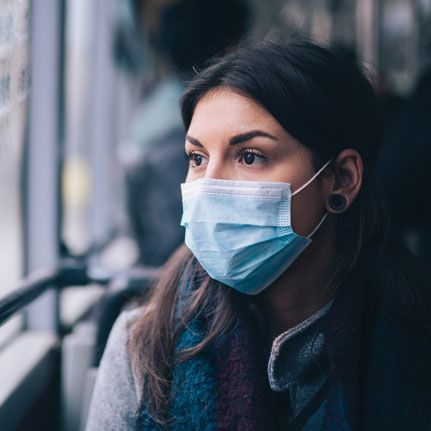Who do Americans trust for COVID-19 news and information?
The ICF COVID-19 Monitor Survey of U.S. Adults measures American attitudes and behaviors about COVID-19 and will track how they change over time. Here’s our first look at how Americans feel about the information they’re getting from the government and news media, and their perception of mitigation strategies. Learn more about the ICF COVID-19 Monitor Survey of U.S. Adults.
The coronavirus pandemic took root in the U.S. last month, and Americans have been exposed to a wide range—and high volume—of messages about the virus and its dangers on a daily basis. As survey researchers, we want to understand the public’s reactions to this information. Who do they trust, how do they feel about the government’s response to the situation, and how might those perceptions change as the crisis evolves? The baseline findings below capture American attitudes as they were at the end of March 2020. We will update this article after each new wave of data collection to show changes and trends as they emerge.
Overwhelming support for measures that reduce the spread of COVID-19
At the end of March, the majority of states had closed schools and nonessential businesses, and had also restricted public gatherings. In addition, the Centers for Disease Control and Prevention (CDC) and state/local health officials had advised the public to engage in social distancing and other measures to reduce the spread of the coronavirus. Overwhelmingly, Americans supported many of these measures.
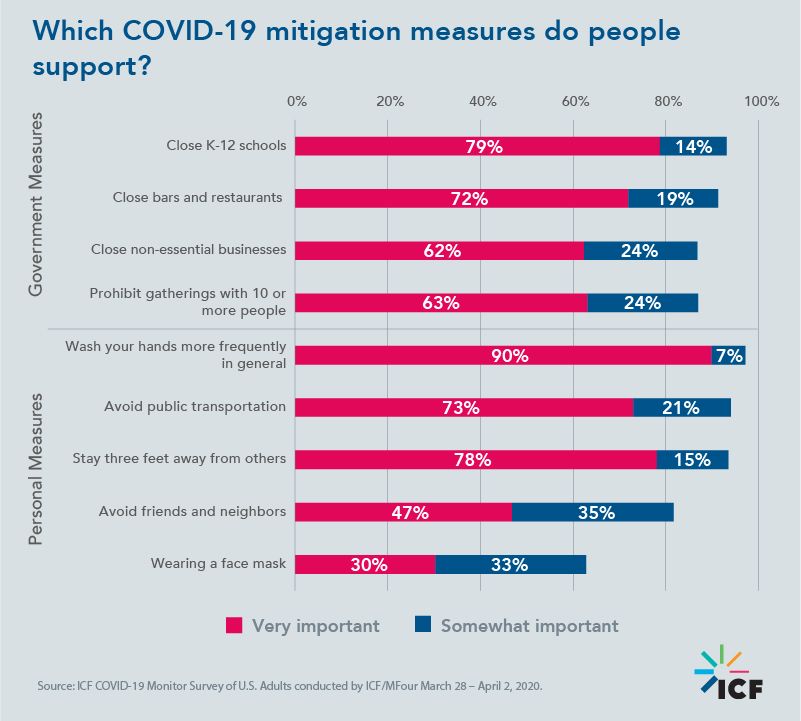
Americans trust the information coming from public health experts
Information about the spread and threat of the coronavirus is disseminated to Americans through federal and state/local officials, as well as through the news media. Our study found that Americans had different degrees of trust in the information depending on the source.
-
Public health experts were the most trusted source of information about the coronavirus, with 87% of Americans reporting that they trusted information a great deal or a fair amount.
-
News media was the source least trusted by the public of those explored in the survey.
-
However, there was a marked difference in how much the public trusts the news media by the source they turn to most often for the news.
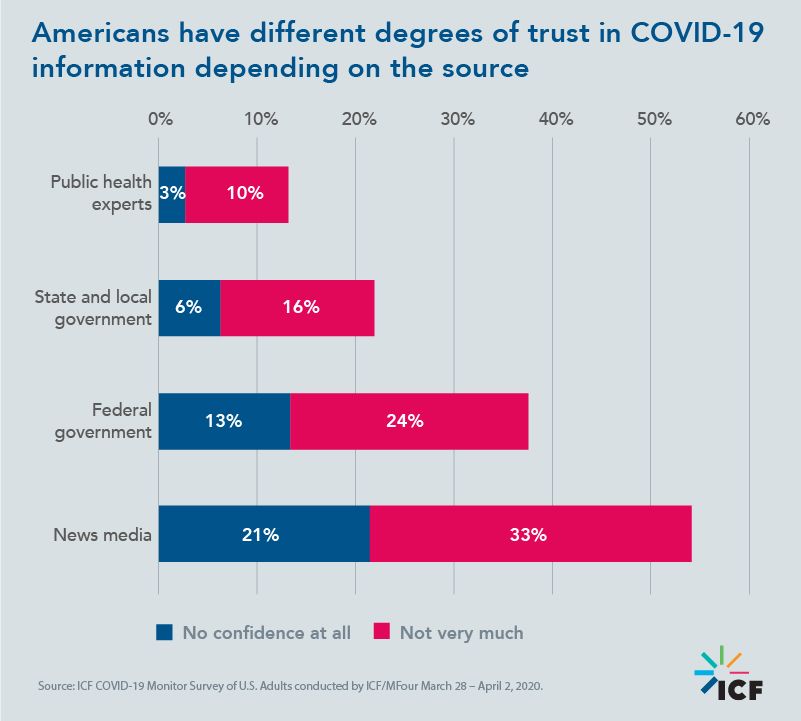
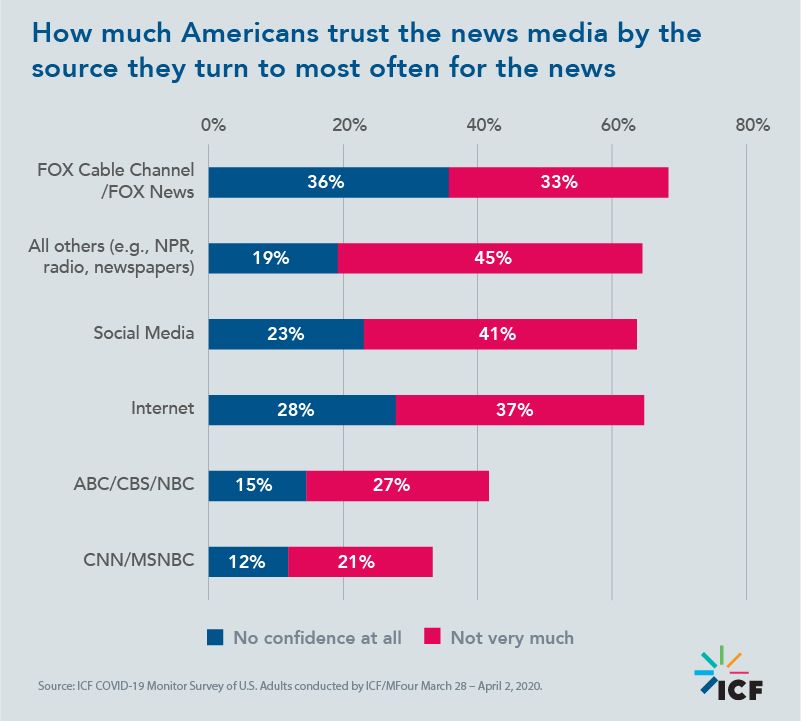
In late March, Americans believed the worst was yet to come and the government wasn’t doing enough to stop the spread.
At the time this data was collected, Americans believed the worst was yet to come from the coronavirus—regardless of their party affiliation. In addition, many felt that the government was not doing enough to stop the spread of the coronavirus.
-
Nearly four out of five (81%) said the worst is yet to come from the coronavirus.
-
Only a third (33%) felt that the federal government was doing enough to prevent the spread of the coronavirus. By contrast, half of the respondents (50%) felt that the federal government was not doing enough to stop the spread of the virus. The remaining 17% were not sure whether the federal government was doing enough or preferred not to answer.
-
Nearly half (49%) said that they were more worried that the United States will not go far enough in limiting the activities and movement of Americans in response to the coronavirus.
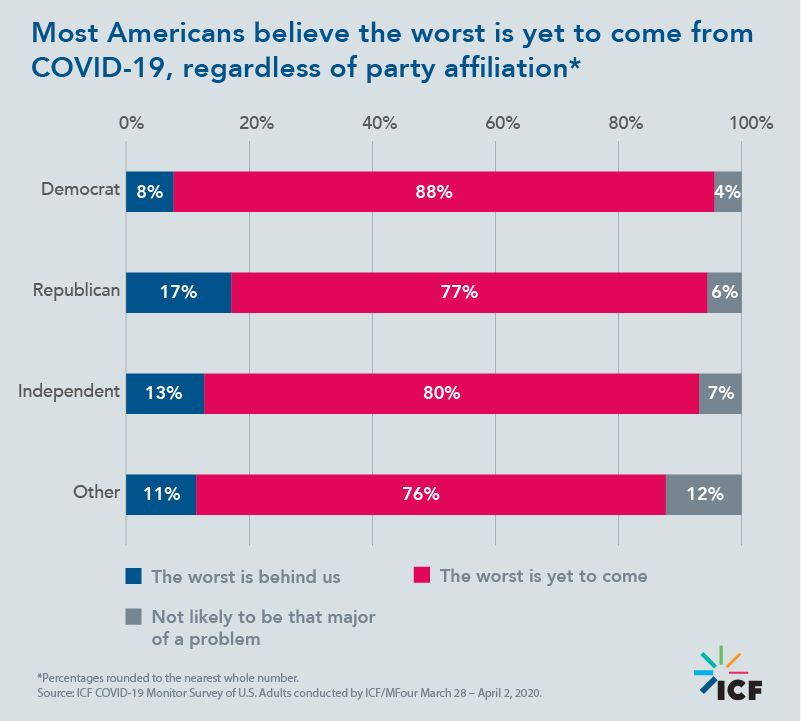
Watch this space
How will public perception change as exposure to the novel coronavirus increases? We will continue to share key findings from our data collection efforts over the coming weeks and encourage public health officials to bear this information in mind as you shape your response to COVID-19. Sign up to receive alerts as we roll out upcoming results and package our insights into reports. Next up, we will begin releasing our data from the second wave, which will show trends from American perceptions of mitigation activities to stop and/or slow the spread of the pandemic.
Read other insights in the ICF COVID-19 Monitor Survey of U.S. Adults series.
